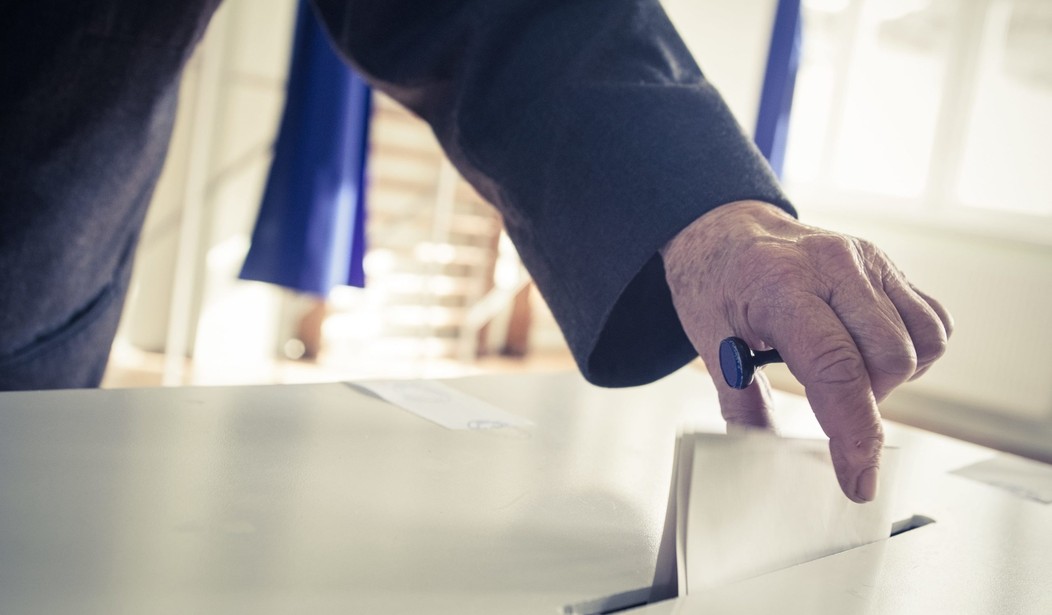Becoming active in the Tea Party movement at its dawn was like being a college freshman. Walking around a 2009 rally was like the quad on the first day of class, a place where one was exposed to a myriad of new ideas and opportunities to get involved.
Among the many issues vying for attention in those days, voter fraud was a hot topic. That made sense, especially in Minnesota, where Al Franken had recently overcome a vote deficit during a recount to inch ahead of Norm Coleman and become a U.S. senator. The margin was razor thin, which invited the narrative that Franken’s victory was enabled by voter fraud.
A handful of conservative groups, including Minnesota Majority (which I sat on the board of for a time) and the Minnesota Voters Alliance, worked hard in pursuit of legislation designed to prevent voter fraud. A big piece of that was an item placed on the 2012 ballot to amend the state constitution and require photo ID at the polls.
That effort failed in a dramatic way. Months prior to the election, photo ID was an 80/20 issue supported by the people of Minnesota. In a relatively short period of time, that support plummeted. Opponents of photo ID staged an effective campaign against the measure which portrayed it as at best a solution looking for a problem, and at worst a naked attempt at voter suppression. Proponents meanwhile placed faith in early polls and failed to fund a counter-narrative. That proved to be a mistake.
Since then, the national dialogue has turned decisively against election integrity. A recent example once again comes from Minnesota, as reported by the Minneapolis Star Tribune:
The Minnesota Supreme Court on Wednesday dismissed a challenge from a conservative group seeking changes to how voter eligibility disputes over possible felony convictions are resolved during elections.
In a 14-page ruling, justices said the lawsuit, filed by the Minnesota Voters Alliance, must first be heard in lower courts.
…
In 2012, the Minnesota Voters Alliance advocated for the failed state voter ID constitutional amendment. Opponents decried the effort, saying it sought to suppress voters who tended to be members of minorities, transient or low-income.
Recent court decisions have rejected stricter voter regulations approved in Kansas, North Carolina, North Dakota, Texas and Wisconsin, finding in virtually all cases that voter fraud is nonexistent and that the tougher regulations disenfranchised minority voters.
Contrary to how it is reported there, the courts have not found “that voter fraud is nonexistent.” They don’t prove negatives. They merely lacked the evidence to conclusively identify voter fraud. There’s a difference, and it’s a vital one.
The problem in Minnesota, as it is in several states, is insufficient mechanisms to detect voter fraud. Illegal ballots could be cast, and we would not know about it. That means no evidence, which opponents of voter ID portray as “no fraud.” It’s like arguing against locking your door at night because there’s no evidence that anyone has unlawfully entered your home. You shouldn’t need such evidence to justify locking the door. You lock it because locking doors is prudent.
All that said, for better or worse, the tide has clearly turned against voter integrity efforts. There comes a time in political endeavors where one must adjust to the new context. For proponents of election integrity, that time is now. It’s time to try another approach. As you might imagine, I have one in mind. It’s called — are you ready for this? — actually convincing people to vote for us.
We can debate the extent to which voter fraud is taking place. Perhaps it is as the left claims, negligible to non-existent. Perhaps it is as many on the right have claimed, bad enough to throw close elections and disenfranchise millions of lawful voters. Who knows? Regardless, unless we maintain that fraud accounts for tens of thousands of ballots cast (a dubious proposition), it is fair to say that voter fraud cannot overcome a decisive electoral mandate. So let’s stop having close elections. Let’s win by landslides. Let’s blow the left out of the electoral water.
Losers whine about the conditions and the refs. Upon reflection, as someone who has vigorously supported election integrity efforts, that’s how this now feels. We’ve whined about calls which cost us points here or there. But none of it would have mattered if we just blocked, tackled, and handled the damn ball.
The problem with Republicans in a state like Minnesota is that there aren’t enough people who want to vote for us. That’s it. That’s the whole problem. We’re not going to change that by nipping around the margins at actual or imagined fraud. We’re going to change it by providing value and earning voters’ support. If half the effort which has been dumped into election integrity was instead directed toward earning votes, fraud would become a moot point.









Join the conversation as a VIP Member